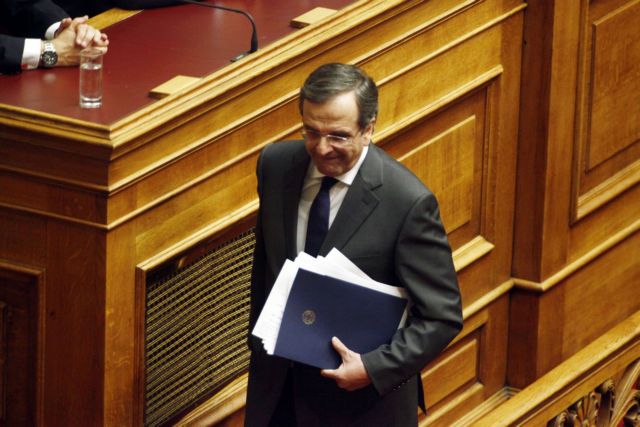The restrained optimism over the progress of the negotiations with the troika amongst government officials of the previous days has given way to skepticism and concern, as creditor demands and unflattering media reports become more prominent. In order to collect a one billion euro loan installment that was due in July, Greece must come to an agreement with the troika on the fate of Greek defense industry EAS, but unfortunately there is a huge distance in opinion on the matter.
The Ministers of Finances Yannis Stournaras and Growth Kostis Hatzidakis will also have to convince the troika on preserving a temporary ban on primary residence auctions. This could mean that an agreement with the troika is not expected before the end of January. The government must vote on the real estate bill by the 20th of December, when Parliament shuts down for the holidays, while the current temporary auction ban expires at the end of the year. It appears likely that the government acts unilaterally on this subject.
While there is no immediate cash flow problem, the one billion euro loan installment will help cover for 1.9 billion euros worth of bonds that mature on the 11th of January. More importantly though delaying this installment will also delay a further 4.9 billion euros, depending on the progress of the bailout program.
The government’s plan for EAS is to keep the defense industry in operation for 12 months with about 350 of its employees, focusing on exports and implementing a restructure program. While the troika is in favor of an immediate closure, it appears that this trial operation might please both sides.
The Prime Minister Antonis Samaras is greatly concerned about the progress of negotiations and has intervened in matters normally addressed by deputy ministers and general secretaries. This suggests that there is a lack of faith in the abilities of many members in the ministerial council.
The IMF’s admission that there were many mistakes and errors in the Greek program has concerned the government, particularly in relation to the upcoming critical votes in Parliament, such as SYRIZA’s proposal for an investigative committee to examine the submarines scandal, where the government Vice President and PASOK leader Evangelos Venizelos is implicated.
With PASOK and SYRIZA currently embroiled in a bitter battle, there is an emerging sentiment amongst New Democracy executives to cut some of the ties with Mr. Venizelos, to avoid being associated with PASOK, which could have a negative impact on the government’s approval ratings.





